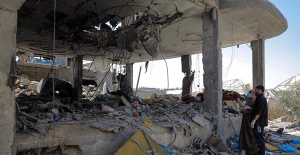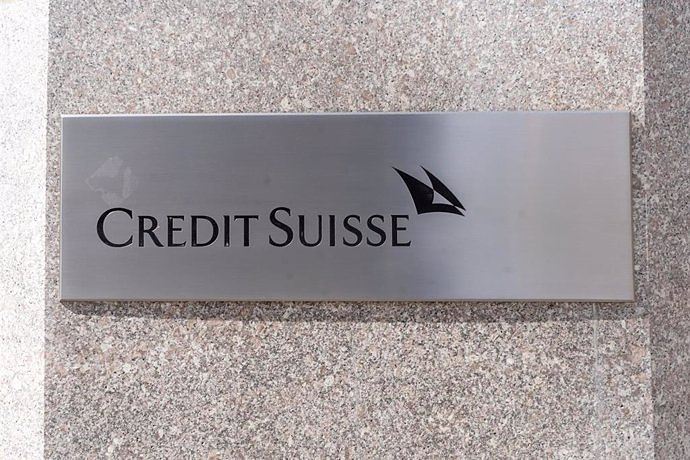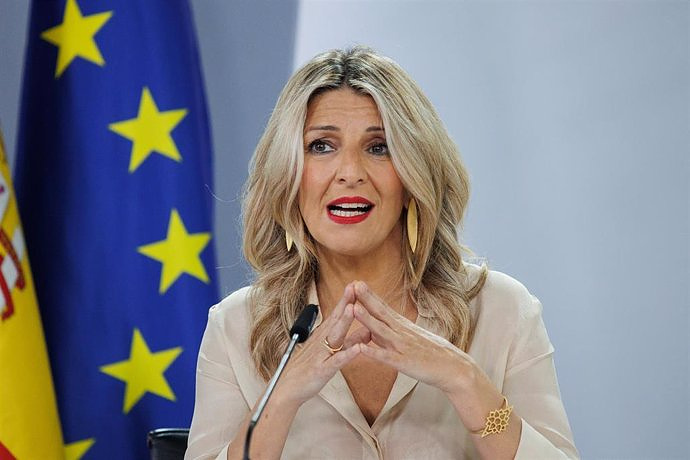At least a dozen journalists have been killed and 21 others have been injured in Ukraine since the outbreak of the war.
MADRID, 7 Mar. (EUROPA PRESS) -
The Safety of Journalists platform, associated with the Council of Europe, has denounced that the prisons of European countries housed a total of 127 journalists at the end of last year 2022, where the 52 professionals imprisoned in Turkey and the Spanish Pablo González in Poland stand out. imprisoned for more than a year in the context of the war in Ukraine.
The platform has published this Tuesday a report entitled "War in Europe and the fight for the right to inform" which, although it is focused on the situation derived from the war in Ukraine, contains recommendations for the group of member countries of the organization and also for the institutions of the European Union.
Thus, in addition to the 52 journalists detained in Turkey -the country that holds the most information professionals in prison-, the report also affects the 32 detainees in Belarus, 22 in Russia and another 14 in Ukrainian territory. In the case of Poland, there is only evidence of one imprisoned journalist, the Spanish González.
"Throughout 2022, the platform published 289 alerts about serious threats or attacks on press freedom in 37 States, with journalists murdered, imprisoned, attacked, legally harassed and subjected to smear campaigns," the agency adds.
Thus, the platform has reported that over the past year it registered a total of 74 alerts about attacks on the physical integrity of journalists, 26 percent of the total alerts. After this, the second reason is the 94 alerts for cases of harassment and intimidation, 32 percent of the total.
In the recommendations for the Council of Europe itself, the report emphasizes the need to apply a series of "legal and practical protections for the safety of journalists and the protection of journalism", mainly focused on approaches aimed at "eradicating impunity". .
Likewise, it is considered essential to prepare an inventory of the state of the public service media in the Member States of the Council of Europe in order to put black on white "if they have editorial and institutional autonomy and if their financing is stable, adequate and transparent" .
For Member States, the report also advocates implementing "effective protection measures" for professionals who are subjected to physical threats and those who suffer abuse by authorities, as well as reviewing and applying policies on Strategic Lawsuits against Participation Public Law (SLAPP), usually aimed at silencing journalists.
Thirdly, Safety of Journalists has recommended that the institutions of the European Union ensure the adoption of the European Law on Freedom of the Media, focusing especially on eradicating external interference, protecting editorial independence and the transparency of the ownership structures.
"Ensure that the pending draft of the Anti-SLAPP Directive of the European Union is broad and solid, and make the adoption of effective legislation a priority," adds the platform in some conclusions where it also asks the European Commission to "promote and give visibility" to the positive measures taken by Member States.
In the final recommendations for the EU institutions, Safety of Journalists has made special mention of the 'Pegasus' program, an Israeli spying system installed on mobile devices and capable of reading text messages, tracking calls, storing passwords and tracking locations
The platform has urged EU member states to "thoroughly" investigate all reports that 'Pegasus' has served to monitor journalists, while demanding to "provide a remedy" for those affected.
Regarding the war in Ukraine, the report denounces that at least a dozen journalists and media workers have died, while another 21 have been injured in the performance of their professional duties.
In her assessment of the report, the Secretary General of the Council of Europe, Marija Pejcinovic Buric, stressed that "many journalists have shown courage", and that many others have even "paid with their lives for the right to report after Russia's aggression against Ukraine".
In addition to the communication professionals who died in the framework of the war, the organization has also had an impact on the legislation approved to regulate journalistic information in Russia, where now communicating about the war in Ukraine must comply with a series of requirements set from the Kremlin.
In fact, the dissemination of information considered false by the Russian authorities can be punished with up to 15 years in prison. To date, at least 17 journalists face charges under this new legislation. For their part, those who "discredit" the Army face up to eight years in prison.
According to the organization OVD-Info, specialized in the defense of Human Rights and in combating political persecution in Russia, at least 27 media outlets had to cease their activity, permanently or temporarily, after the outbreak of the war.
On the other hand, social networking platforms such as Facebook, Instagram or Twitter remain blocked; while Meta --parent of the first two-- was considered a terrorist and extremist organization last October.

 Exploring Cardano: Inner Workings and Advantages of this Cryptocurrency
Exploring Cardano: Inner Workings and Advantages of this Cryptocurrency Seville.- Economy.- Innova.- STSA inaugurates its new painting and sealing hangar in San Pablo, for 18 million
Seville.- Economy.- Innova.- STSA inaugurates its new painting and sealing hangar in San Pablo, for 18 million Innova.- More than 300 volunteers join the Andalucía Compromiso Digital network in one month to facilitate access to ICT
Innova.- More than 300 volunteers join the Andalucía Compromiso Digital network in one month to facilitate access to ICT Innova.-AMP.- Ayesa acquires 51% of Sadiel, which will create new technological engineering products and expand markets
Innova.-AMP.- Ayesa acquires 51% of Sadiel, which will create new technological engineering products and expand markets Mulino, dolphin of former President Martinelli, wins the presidential elections in Panama
Mulino, dolphin of former President Martinelli, wins the presidential elections in Panama The prosecutor who asked to investigate the complaint of Ayuso's partner against two prosecutors for revealing secrets is removed
The prosecutor who asked to investigate the complaint of Ayuso's partner against two prosecutors for revealing secrets is removed The PSC would win the Catalan elections with between 40 and 42 seats, followed by Junts (35-37) and ERC (21-23)
The PSC would win the Catalan elections with between 40 and 42 seats, followed by Junts (35-37) and ERC (21-23) The Israeli Army asks Palestinians to leave Rafah "immediately" in the face of an imminent offensive
The Israeli Army asks Palestinians to leave Rafah "immediately" in the face of an imminent offensive How Blockchain in being used to shape the future
How Blockchain in being used to shape the future Not just BTC and ETH: Here Are Some More Interesting Coins Worth Focusing on
Not just BTC and ETH: Here Are Some More Interesting Coins Worth Focusing on A sensor system obtains the fingerprint of essential oils and detects if they have been adulterated
A sensor system obtains the fingerprint of essential oils and detects if they have been adulterated Faraday UPV presents the 'Origin' rocket to exceed 10 km of flight: "It is the beginning of the journey to space"
Faraday UPV presents the 'Origin' rocket to exceed 10 km of flight: "It is the beginning of the journey to space" The Generalitat calls for aid worth 4 million to promote innovation projects in municipalities
The Generalitat calls for aid worth 4 million to promote innovation projects in municipalities UPV students design an app that helps improve the ventilation of homes in the face of high temperatures
UPV students design an app that helps improve the ventilation of homes in the face of high temperatures A million people demonstrate in France against Macron's pension reform
A million people demonstrate in France against Macron's pension reform Russia launches several missiles against "critical infrastructure" in the city of Zaporizhia
Russia launches several missiles against "critical infrastructure" in the city of Zaporizhia A "procession" remembers the dead of the Calabria shipwreck as bodies continue to wash up on the shore
A "procession" remembers the dead of the Calabria shipwreck as bodies continue to wash up on the shore Prison sentences handed down for three prominent Hong Kong pro-democracy activists
Prison sentences handed down for three prominent Hong Kong pro-democracy activists ETH continues to leave trading platforms, Ethereum balance on exchanges lowest in 3 years
ETH continues to leave trading platforms, Ethereum balance on exchanges lowest in 3 years Investors invest $450 million in Consensys, Ethereum incubator now valued at $7 billion
Investors invest $450 million in Consensys, Ethereum incubator now valued at $7 billion Alchemy Integrates Ethereum L2 Product Starknet to Enhance Web3 Scalability at a Price 100x Lower Than L1 Fees
Alchemy Integrates Ethereum L2 Product Starknet to Enhance Web3 Scalability at a Price 100x Lower Than L1 Fees Mining Report: Bitcoin's Electricity Consumption Declines by 25% in Q1 2022
Mining Report: Bitcoin's Electricity Consumption Declines by 25% in Q1 2022 Oil-to-Bitcoin Mining Firm Crusoe Energy Systems Raised $505 Million
Oil-to-Bitcoin Mining Firm Crusoe Energy Systems Raised $505 Million Microbt reveals the latest Bitcoin mining rigs -- Machines produce up to 126 TH/s with custom 5nm chip design
Microbt reveals the latest Bitcoin mining rigs -- Machines produce up to 126 TH/s with custom 5nm chip design Bitcoin's Mining Difficulty Hits a Lifetime High, With More Than 90% of BTC Supply Issued
Bitcoin's Mining Difficulty Hits a Lifetime High, With More Than 90% of BTC Supply Issued The Biggest Movers are Near, EOS, and RUNE during Friday's Selloff
The Biggest Movers are Near, EOS, and RUNE during Friday's Selloff Global Markets Spooked by a Hawkish Fed and Covid, Stocks and Crypto Gain After Musk Buys Twitter
Global Markets Spooked by a Hawkish Fed and Covid, Stocks and Crypto Gain After Musk Buys Twitter Bitso to offset carbon emissions from the Trading Platform's ERC20, ETH, and BTC Transactions
Bitso to offset carbon emissions from the Trading Platform's ERC20, ETH, and BTC Transactions Draftkings Announces 2022 College Hoops NFT Selection for March Madness
Draftkings Announces 2022 College Hoops NFT Selection for March Madness
























